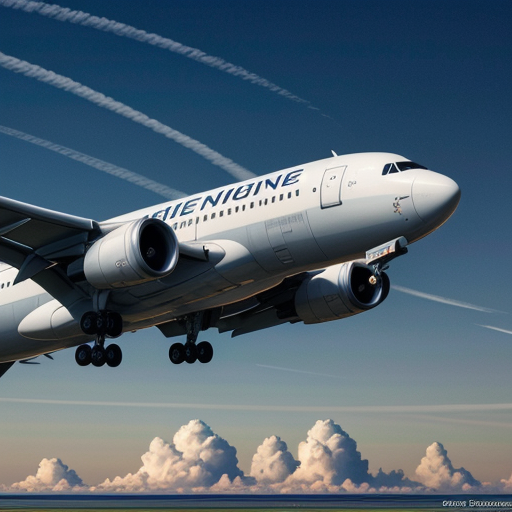
Counterfeit Titanium in Boeing and Airbus Jets - A Cause for Concern
Investigation Underway
The Federal Aviation Administration (FAA) is currently investigating the presence of counterfeit titanium in components of recently manufactured Boeing and Airbus jets. The material was allegedly sold with forged documentation purporting to verify its authenticity, raising concerns about the structural integrity of the affected aircraft. The investigation was initiated after a supplier discovered small corrosion holes in the questionable material.
Affected Planes and Parts
According to sources familiar with the matter, the titanium components were used in a range of aircraft parts, including passenger entry doors, cargo doors, engine mounts, and heat shields. The affected planes include Boeing 737 Max and 787 Dreamliner jets, as well as Airbus A220 aircraft built between 2019 and 2023. It is not yet known how many of these planes are currently in service or which airlines operate them.
Supply Chain Scrutiny
The incident highlights the complexities of the global supply chain used in modern jetliner production. The titanium in question is believed to have originated from a Chinese supplier and passed through several companies in Turkey, Italy, and the United States before reaching Spirit AeroSystems, which supplied the components to Boeing and Airbus. The investigation aims to determine the source of the counterfeit material, its compliance with industry standards, and the structural integrity of the affected parts over the projected lifespan of the aircraft.
Safety Implications
The FAA is assessing the potential safety implications of the counterfeit titanium. Boeing and Airbus have conducted tests on the affected materials and reported no immediate concerns. However, further testing is ongoing to ensure the airworthiness of the aircraft. Spirit AeroSystems is working with customers to identify the planes with affected parts, which may require earlier-than-scheduled removal and replacement during routine maintenance.
Impact on Industry
The revelation of counterfeit titanium in Boeing and Airbus jets has shaken the aviation industry. It comes at a time when Boeing is already under intense scrutiny following a series of recent mishaps and safety issues. The incident raises questions about the effectiveness of supply chain safeguards and the potential for similar issues affecting other aircraft manufacturers. The investigation and its findings will likely have a significant impact on industry practices and regulations.
Quotes and Statements
"This industrywide issue affects some shipments of titanium received by a limited set of suppliers, and tests performed to date have indicated that the correct titanium alloy was used," said a Boeing statement. "Our analysis shows the in-service fleet can continue to fly safely."
"Numerous tests have been performed on parts coming from the same source of supply," said an Airbus spokeswoman. "The safety and quality of our aircraft are our most important priorities, and we are working in close collaboration with our supplier."
"We are cooperating with relevant authorities to address any issue eventually identified," said Francesca Conti, a general manager for Titanium International Group.
Conclusion
The FAA's investigation into the counterfeit titanium in Boeing and Airbus jets is ongoing, with implications for the safety and integrity of affected aircraft. The incident highlights the need for robust supply chain oversight and the importance of ensuring the authenticity and quality of materials used in aviation manufacturing. As the investigation progresses, further updates and actions are expected to address the concerns raised and maintain the safety of air travel.


0 Comments